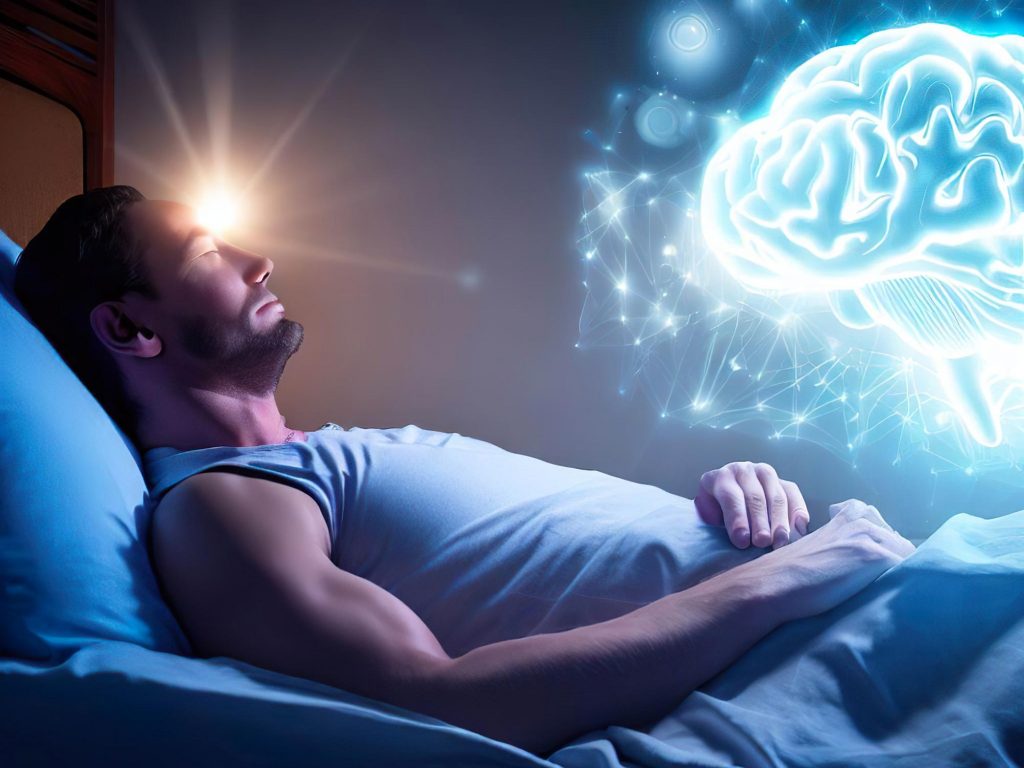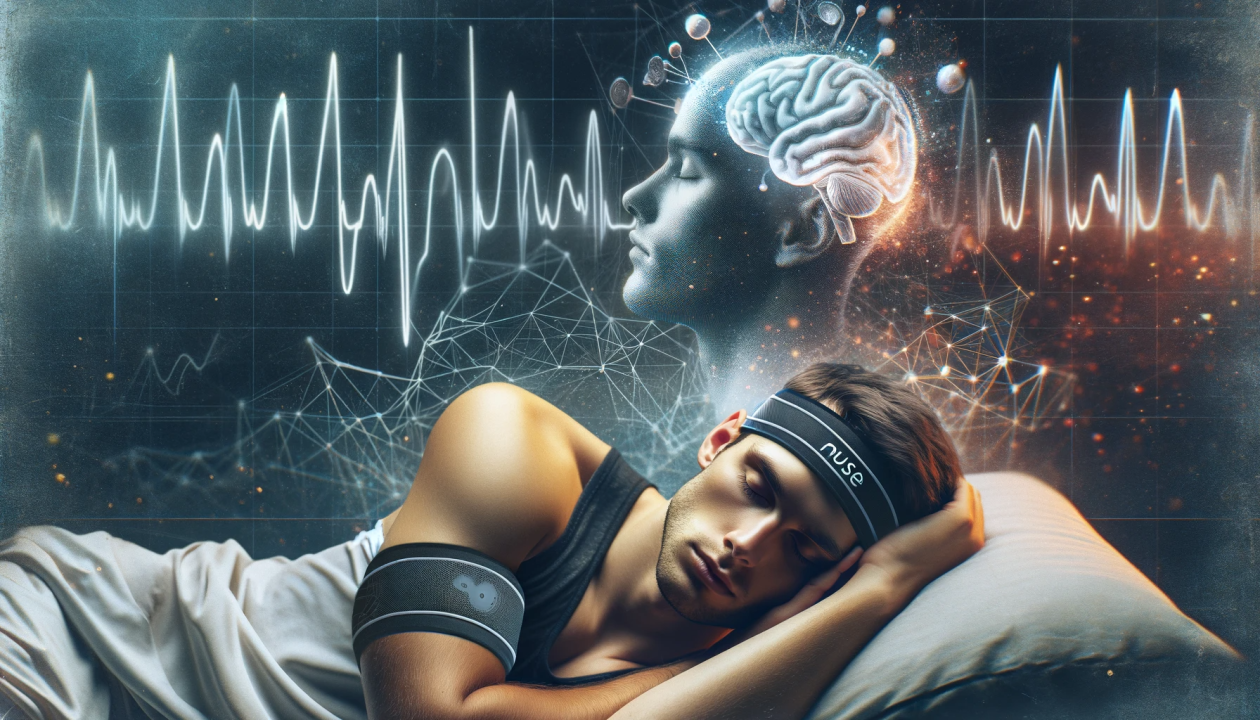If one even talks about fitness, diet, exercise, and mood swings perhaps that would be one of the focused areas. This area is highly overlooked; an important constituent called sleep usually goes down in its quality and therefore makes a mountain of an issue over the course of years for overall performance based on muscular recovery and the mind. This way, the subsequent is an elaborated learning process of how much sleep would influence the level of fitness coupled with exactly what will further enhance it and make up one’s future roadmap.

Science of Sleep
Although the biology about sleep does bring about its existence owing to alternations and changes in types of fluctuation between REMs and non-REM patterns. And however, every variant is different, but it does play some role in building health and fitness.
- Non-REM Sleep: The rejuvenation state with a critical time of body. It contains stages of deep sleep wherein bodies repair tissues, build up muscles, and boost immunity.
- REM Sleep: This is the stage of sleep, which contains significant activity in the brain. REM sleep has been related to dreams and some of the cognitive processes including consolidation of memory and mood modulation.
Physical Activity and Sleep
(1) Energy and Endurance:
Proper sleep may be used to ascertain energy and endurance. This element of sleep deprivation creates a sense of tiredness and makes one less motivated as well as less powerful to involve himself in the activity. Sleep-deprived research subjects were said not to have good performance in doing aerobic exercise as well as more effort during work out. That is, lots of hours of fewer hours of sleep are filled with much feelings of tiredness and low energy; hence the person is not able to render his or best effort at workouts.
(2) Muscular repair and build-up
The time at non-REM is when deep sleep is required for muscular systems. That is when probably repairs and growing ought to be going on. This is when the body has time to discharge hormones that associate with tissue repairing and building up the muscles. A person would sleep for shorter hours distort this cycle. This therefore means they take longer than before to
regain the status of muscles and thus, become sore, retardation, and risk injuries during the course.
(3) Reaction time and coordination
It does not also carry other psychological ability like reaction and coordination. After the games and challenging workouts, the head is supposed to be at its prime to act at that level it needs to act at. The less rested the head will be, the quicker it is going to react and coordinate, which will, in turn give a better output with fewer possibilities of accidents or injuries.
Mental Health and Sleep
(1) Anxiety Relief
It is called sleep. It regulates all the stress hormones in the body, and one of them is cortisol. Cortisol will be high if one experiences chronic sleep deprivation. Thus, most of the times, sleep deprivation increases your level of stress and anxiety. Long term, one’s fitness levels reduce because it is hard to have the motivation for sticking to a regular routine, just like sticking with the exercises and staying constant over time.
Stable sleep helps in giving emotional stability. This, therefore reduces the psychological barriers to attain normal exercising activity for one.
(2) Mood and Motivation
It has an intimate relation with the diseases of moods inclusive of depression and anxiety. Poor quality sleep is found to have interrelated effects on mood alterations, mood change as well as de-motivation. Good sleep quality is said to promote good moods in him and further help to enlighten expectations in front of workout goals but strengthen him physically and the power through which he would face the storms.
Hormonal Balance and Sleep
(1) Appetite Regulation
It regulates the hormone which is liable for hunger. There are two such hormones – ghrelin and leptin. The hormone that induces a sensation of hunger is called as ghrelin and that hormone which gives sensation to the body saying it’s full is called as leptin. A sleep deficit elevates the levels of ghrelin and lowers the levels of leptin. These two elements cause hunger and a desire to consume calorie-dense foods, primarily those with a high sugar concentration. This is one of the possible reasons behind an imbalance in the hormonal system influencing your diet that could lead to weight gain.
(2) Metabolic Health
Poor glucose regulation and lower level of responsiveness of insulin with regard to bad sleeping. It also increases the risk of developing such metabolic conditions and type 2 diabetes through the resultant overweight. Good sleep promotes managing weight and wellness.
How to improve sleeping, get fit, and get physically fit .
Strategies to Improve Sleep for Better Fitness
(1) Establish a Routine
Consistency will help improve the quality of your sleep. Bed and wake-up hours should be consistent every day of the week, including weekends. This will help maintain your internal clock to sleep quickly and wake up naturally.
(2) Keep your environment sleep-friendly
The quality of your sleep is determined primarily by the sleep environment. Your bedroom needs to be dark, quiet, and cool. Your bed and pillows should be very comfortable. Remove any device that emits blue light and disrupts your natural cycle.
(3) Relaxation Techniques
Add relaxation techniques such as deep breathing, meditation, or some light yoga around dusk. This will ease out both the mind and the body while it sleeps.
(4) No caffeine and other stimulants
Avoid stimulating items like caffeine and nicotine a few hours before bedtime. Both help one to be sleep-deprived as much as awake. Switch over to some warm milk or herbal de-stressing teas.
(5) Manage Stress
Maintain a journaling pad, engage in physical activity, or talk it through with a friend or therapist.
Most importantly, when the stress is under control, your sleep gets better, and so do you.
(6) Mind Your Diet
It will affect the quality of your sleep by diet. Heavy or spicy food before sleeping will be uncomfortable and, surely, create discontinuity in your sleep. Add sleep-inducing foods such as cherries, almonds, or whole grains in your diet.
Conclusion
The end of those Sleep is incomplete without fitness. Increased level of energy, recovery of the muscle, regulating stress in mind, and hormonal control-fitting and fabulous at both the physical as well as mental levels reached every nook and corner of human health. The healthy sleeping practice is not taken casually, and the inclusion of healthy sleep practice into daily routine would no doubt bring about a drastic turn of fitness in the way and quality of living.
